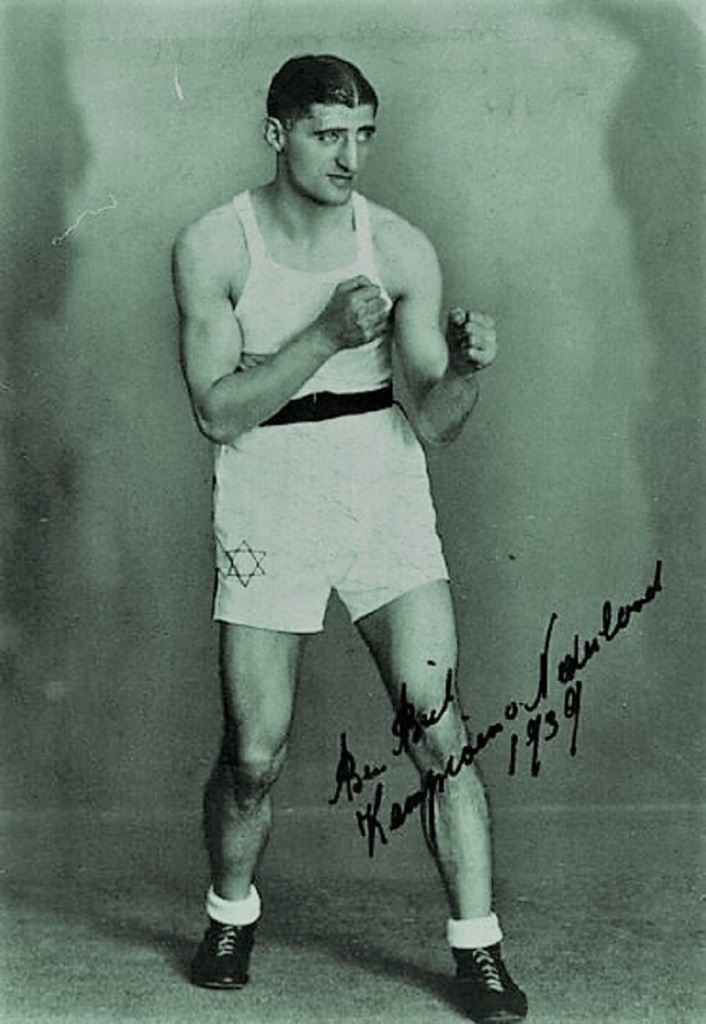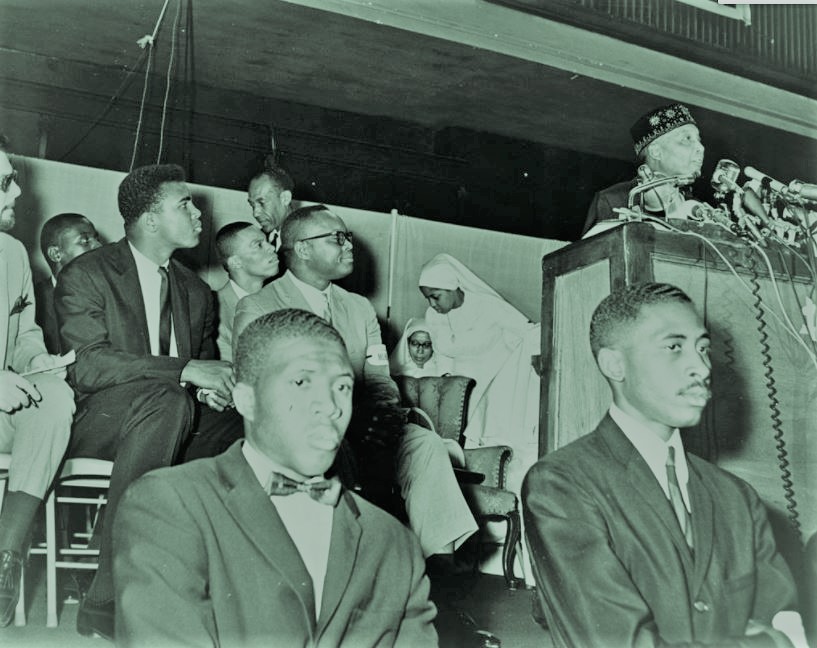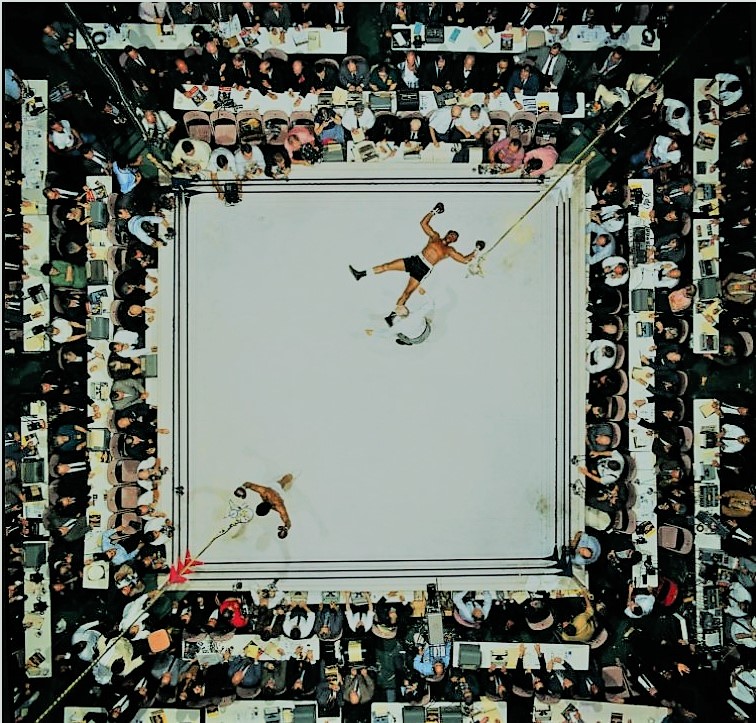
It’s hard to believe that the only time the Olympics were held in the Netherlands, was nearly 100 years ago at the 1928 Amsterdam Olympics. One of the competing Dutch athletes was Ben Bril.

Ben (Barend) Bril was born on 16 July 16 1912, in Amsterdam, the host city for the 1928 Summer Olympics. He was one of seven children to Jewish parents Klaartie Moffie and Abraham Bril, who worked as a fish monger.
He grew up in one of the poorest parts of Amsterdam as the second youngest of seven children. It was a hard upbringing, according to Steven Rosenfeld, a relative of Bril’s through his wife Celia and has written a book about his life: Dansen om te overleven (Dancing to Survive). They lived in tenements, he didn’t sleep in a bed, he slept on straw, they didn’t have a toilet, he had to carry buckets down to the street,” Rosenfeld says.
Bril competed as a boxer in the 1928 Summer Olympics at age 15 in his home town, finishing fifth in the flyweight class, just out of medal contention. In his Olympic competition, after a first-round, he defeated Myles McDonagh from Ireland, before losing to Buddy Lebanon of South Africa.
McDonagh was 23. Bril had just turned 16 that day. He was the youngest ever boxer to take part in the Olympic Games.
For the young Bril, fighting was a part of daily life. There were scraps with friends, of course, and clashes with rival groups from different communities in the tightly packed city. Politics, discrimination and Bril’s Jewish faith were the reasons for 1928 being Bril’s only Olympic matches. He was not chosen for the 1932 squad, because the head of the boxing committee was a member of the NSB, the Dutch Nazi party. Bril boycotted the 1936 Berlin games being held in Nazi Germany, on his own accord.
As he got older, Bril found work in a butcher’s shop and used his new job to help develop his sport. Bril reached a milestone in his career by winning the gold medal at the Maccabi Games in 1935. He won the Dutch title in his division eight times. Years before it became mandatory for Jews, the proud champion Ben Bril had himself photographed with a Star of David on his boxing kit.
In 1934, Bril went with a Dutch Jewish group to compete in Germany.
The Nazis had been in power for a year. The state had already begun to discriminate officially against Jews. The atmosphere was hostile and daily life was being made increasingly difficult.
Bril was appalled by what he saw.
“We saw brown uniforms everywhere, swastika flags, the word ‘Jew’ on Jewish people’s businesses,” Bril told a Dutch newspaper many years later.
“I said then, as long as this regime is in power, I will never go to Germany.”

In May 1940 Germany invaded the Netherlands. Initially little changed, but gradually life for Dutch Jews became more restricted, and increasingly under threat.
There were restrictions on which public spaces Jewish people could enter, and in particular an attempt to force bars and cafes to ban Jews from their premises, which often ended in violence.
This sparked the creation of several Jewish defence groups, some centred around sports clubs like the one of which Bril was a member. On 11 February 1941, Dutch Nazis marched into the Jewish district of Amsterdam. A previous incursion two days earlier had resulted in attacks on Jewish homes and businesses.
In 1942, Bril, who was Jewish, was arrested by Jan Olij, the son of Sam Olij, a former 1928 Olympic teammate. He was first sent to the Vught Transit Camp, a concentration camp in Southern Holland with deplorable conditions, located Southeast of his home in Amsterdam. Once deported to Northern Germany and interned at the Bergen-Belsen Concentration Camp, Bril was able to get a job, and then a promotion to the position of Blockälteste, which put him in charge of his barrack. Looking to survive, he was selected to box at the camp, where he let known German boxers defeat him. Four of his brothers and a sister died in the camps.
There is one moment that stands out from Bril’s life during the war beyond all others. It was a moment fraught with danger, but one in which he acted instinctively. It came at the Nazi concentration camp at Vught, and we can hear about it through Bril’s own words because he told the story to Braber in the 1980s.
“A boy had attempted to escape, but they caught him,” said Bril.
“They placed him on a rack, and he was to get 25 lashes of a whip. Suddenly the commander called out: ‘Boxer – step forward!’
“I had to carry out the punishment, but I refused. The commander said that if I didn’t I would get 50 lashes, so I took the whip but when I hit him, I aimed to strike too high.
“The commander got mad: ‘Not so!’ he cried. He grabbed the whip and started beating like mad. I walked back to my line.”
Why Bril suffered no consequences for his refusal to carry out the order is not known, but those who witnessed it were under no doubt as to what they had seen.
“Ben Bril was the only man I saw during two and a half years in concentration camps or heard of, who risked refusing to carry out a formal order of the SS,” according to historian Braber who quotes the head of Vught’s Jewish administration as testifying after the war.
In January 1945, from Bergen-Belsen, the family were included in a prisoner exchange that saw them taken first to Switzerland, then to a United Nations camp in Algeria, before making it back to Utrecht.
Bril didn’t return to the ring as a fighter after the war, but he couldn’t leave boxing.
He became a senior official in the sport, acting as a referee and judge at fights around the world, all the way into the 1970s.
Bril went to the Olympic Games in Tokyo in 1964 (where he once again showed his character by leaping into the ring to protect a fellow referee who had been punched by a competitor), Mexico City in 1968 and Montreal in 1976.
He missed the 1972 Games in Munich, and its own tragic story, only because of a dispute with the boxing authorities in the Netherlands.
Ringside or on the canvas, he played a small role at the start of the careers of some of the greats, officiating in fights involving world champions Joe Frazier, George Foreman and Sugar Ray Leonard.
Thank you, Michele Kupfer Yerman for pointing out the story to me.
sources
https://www.europeana.eu/en/blog/ben-bril-the-youngest-ever-olympic-boxer

















You must be logged in to post a comment.